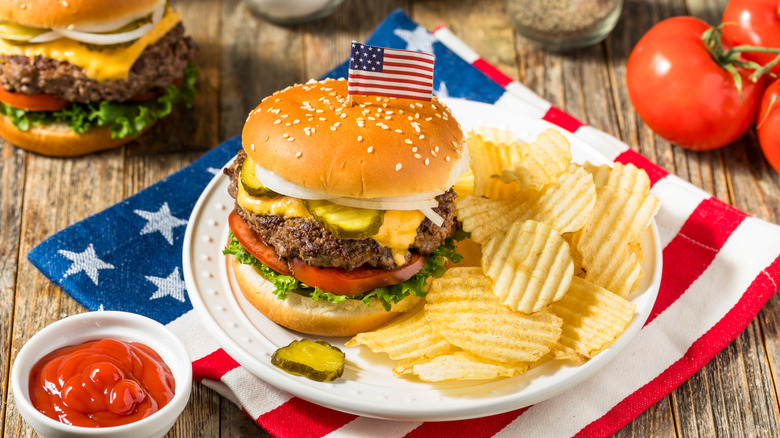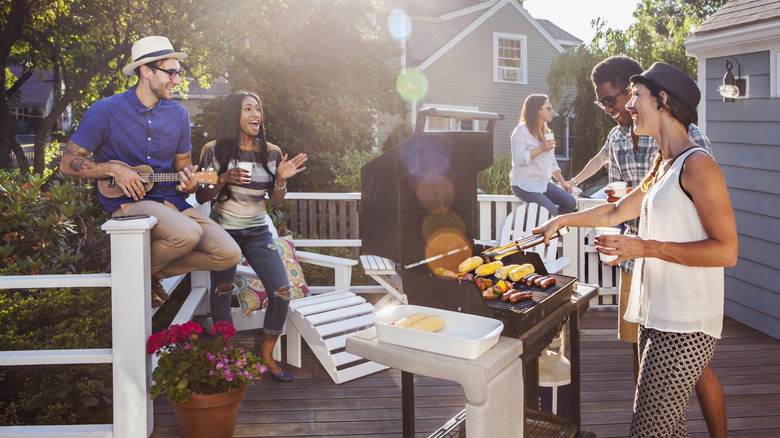Why Barbecues Became A 4th Of July Tradition
We may receive a commission on purchases made from links.
The typical Fourth of July barbecue is one of the most important traditions in the U.S. But, how did the country decide that grilled meat was the best way to celebrate its Independence? It turns out, unsurprisingly, that it comes from an agglomeration of numerous traditions. English immigrants picked up cooking methods that Indigenous Americans used. The Powhatans, for instance, smoked meats in order to preserve them throughout the harsh winters, and the Caribbean Tainos cooked meats in wooden racks that Spaniards called "barbacoa." Kidnapped West Africans also brought with them a strong heritage of celebrating important dates with smoked, spiced meat. These methods came together in the American South, which was home to Indigenous, European, and African people, and which bordered Spanish colonies. Eventually, something similar to what we would call an "American" barbecue was born.
Before the Civil War, many people in the South commemorated Independence with this delicious food. Louis Hughes, a former slave, wrote in his 1897 memoir "30 Years a Slave — From Bondage to Freedom," that Fourth of July was important in the plantation where he was forced to work. Of course, enslaved people did all the work, but, at least according to Hughes, the date was a welcome celebration where they were allowed to have a feast and enjoy a rare "day off." Interestingly, Hughes' memoir also gives a glimpse of the type of barbecue sauces used during this time, which are very different from the ones we used today.
How the modern Fourth of July barbecue came about
In the 19th century, the tradition of celebrating Independence by grilling meats spread from the South to the rest of the country. Around this time, German immigrants brought new foods to the barbecue table, like Hamburg steak (which eventually led to the hamburger) and German sausages (which became hot dogs). During this century, politicians began to host community-wide barbecues in the hopes of gaining political favors. These events usually had parades and speeches that we imagine talked about the greatness of the U.S. (conveniently ignoring the enslaved people who made the meal).
After the Civil War, many white Southerners bitterly swore off the holiday, while Black Americans celebrated it with more vigor than ever. They kept the tradition of barbecuing alive since they had been the ones initially responsible for cooking it. The bitterness lasted until the early 20th century, perhaps because segregation kept Black people from enjoying the same communal barbecues as white people in the South. At this time, advancements also made it possible to grill meat without needing a huge open space, so people began to eat barbecue at restaurants or even build pits at home. This became an even bigger trend later in the century, as more people moved to the suburbs and away from places with communal spaces. With the average cost of a barbecue cookout being the highest ever in recorded history, this important American tradition might continue to change in unexpected ways.

